Why North Korean troops in Russia will put China in a tough spot
Lianhe Zaobao correspondent Sim Tze Wei speaks to academics on North Korea’s potential entry to support Russia in its war against Ukraine, as they note how treaties and geopolitical relations put China in a tough spot between Russia and North Korea.
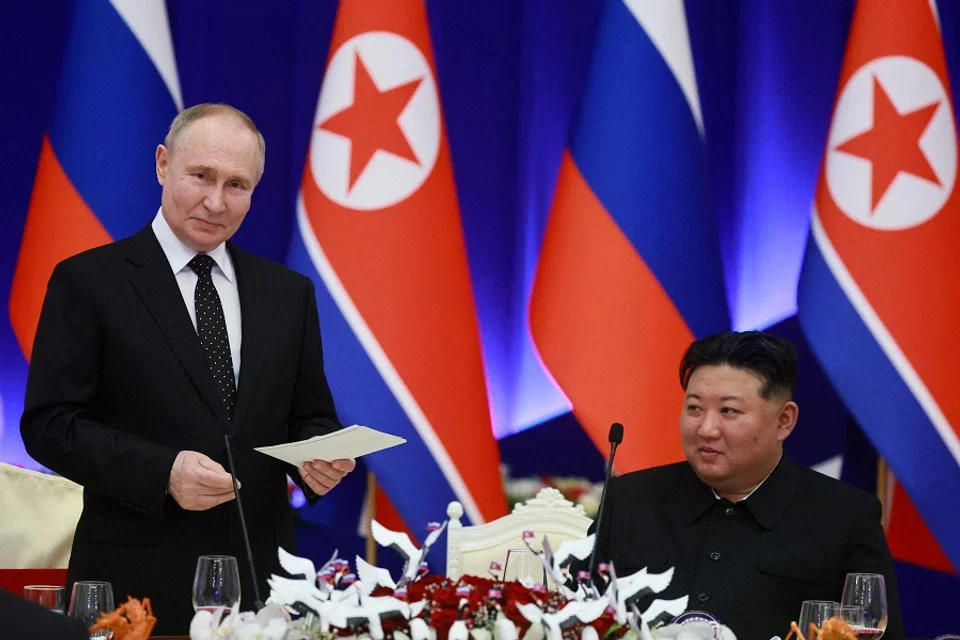
North Korea’s potential military support for Russia suggests the nearly three-year-old Russo-Ukrainian war could expand beyond its current boundaries. If the conflict spills into Asia, it could directly threaten Northeast Asian security.
China maintains friendly relations with both Russia and North Korea, with its partnership with Russia described as “limitless”. Both Russia and North Korea, particularly the latter, are especially reliant on China. Academics interviewed described North Korea’s actions as “extremely dangerous”, noting that China’s situation is “awkward and difficult”.
Ukrainian President Volodymyr Zelenskyy stated last month that intelligence indicates that Pyongyang may deploy troops to the Russian border. Subsequently, the US and its allies have reported that North Korean soldiers are gathering on the front line in Russia’s Kursk region. Washington claimed that North Korea has sent about 10,000 troops to Russia. The defence ministers of the US and South Korea urged North Korea to withdraw its troops from Russia on 30 October, while Russia’s envoy to the United Nations (UN) questioned why its allies like North Korea could not help Moscow given that Western countries claim the right to help Kyiv.
... if North Korean forces enter Ukrainian territory and become a participant in the war, the Russia-Ukraine war will escalate and become more complex. — Associate Professor Li Mingjiang, RSIS, NTU
Treaties and geopolitics
When Russian President Vladimir Putin visited Pyongyang in June, he signed the Treaty on the Comprehensive Strategic Partnership with North Korean leader Kim Jong Un. The treaty states that if either party is attacked, the other party must provide assistance. North Korea probably used this clause to justify its decision to send troops to Russia.
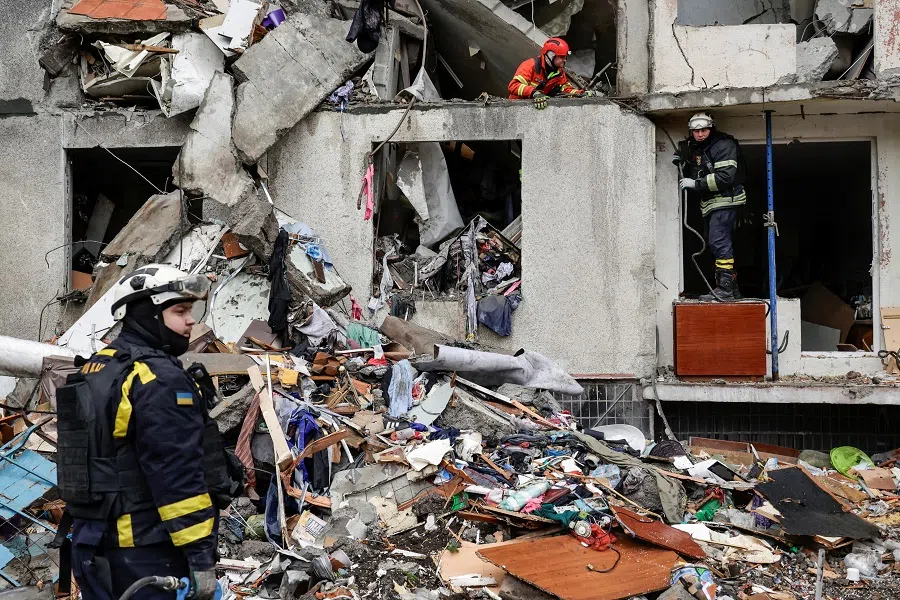
Quoting intelligence officials, CNN reported on 30 October that a small number of North Korean troops are already inside Ukraine. On the other hand, citing Ukraine’s UN ambassador, AFP reported that North Korean troops wearing Russian uniforms to conceal their presence are moving toward Ukraine, and are expected to engage in combat with Ukrainian forces in November.
Li Mingjiang, an associate professor at the S. Rajaratnam School of International Studies (RSIS) at Nanyang Technological University (NTU), pointed out to Lianhe Zaobao that North Korea sending troops to aid Russia reveals the severity of Russia’s manpower shortage; the deployment location of North Korean soldiers will be crucial.
If North Korean troops are stationed in Russia’s Kursk region, Russia and North Korea can frame their actions as “assisting Russia in defending its territory”. However, if North Korean forces enter Ukrainian territory and become a participant in the war, the Russia-Ukraine war will escalate and become more complex.
Li assessed that the US and NATO may then relent and allow Ukraine to use more advanced weapons against Russian forces. In exchange for sending troops to support Russia, North Korea might acquire more advanced nuclear and missile technologies from Russia. This situation could then lead to an escalation of the US-South Korea-Japan alliance to counter North Korean security threats, disrupting the delicate balance of power on the Korean peninsula.
Faced with escalating geopolitical tensions at its doorstep, how would China manage its relationships with Russia and North Korea to curb the spillover effects of the Russia-Ukraine war into East Asia?
While both countries do want to pull China into rebuilding a trilateral military cooperation, China will not engage in the military alliance between Russia and North Korea. — Zhu Feng, Executive Dean, School of International Studies, Nanjing University
Military alliance between Russia and North Korea
Zhu Feng, executive dean of the School of International Studies at Nanjing University, said in an interview that Russia and North Korea have effectively formed a military alliance, with North Korea providing a significant amount of weapons and ammunition to Russia. While both countries do want to pull China into rebuilding a trilateral military cooperation, China will not engage in the military alliance between Russia and North Korea. “Returning to the 1950s is not at all in China’s interest,” he said. China’s strategic choice is to be a participant in world order and peaceful cooperation.
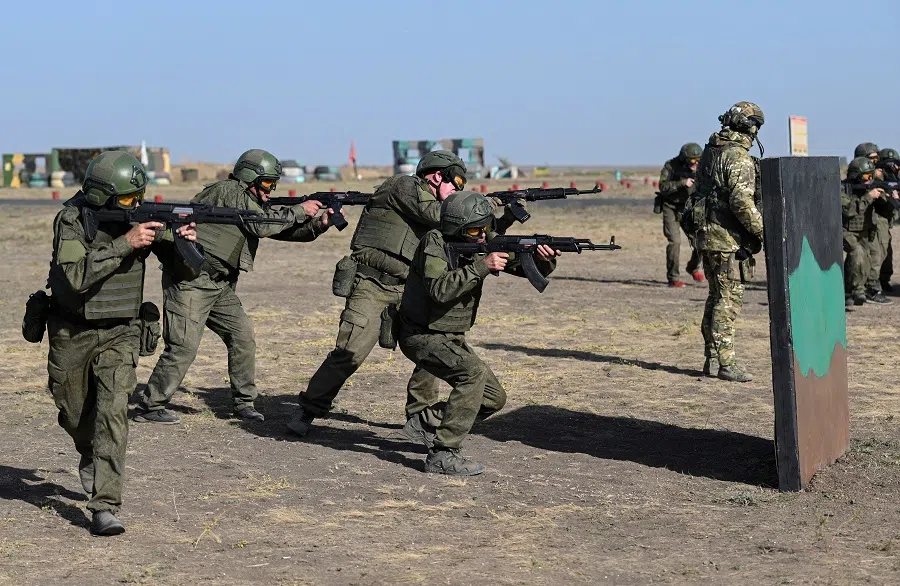
At the same time, Zhu pointed out that what makes things awkward for China is that North Korea’s decision to send troops to assist Russia is deepening the security cooperation between the US, Japan and South Korea, and this trilateral security cooperation will continue to pressure China on issues related to Taiwan and the South China Sea. He said China must clearly express to the US, Japan and South Korea the need for joint action to avoid the catastrophic spillover effects of the Ukraine war in East Asia.
Zhu stressed: “If China is to take proactive steps to ease the situation, the first thing to do is to reduce the awkward situation China faces today. Can the US better understand and respect China’s claims and positions on issues such as the Korean peninsula, security in Central Asia, the Taiwan issue and the South China Sea?”
China caught in between
Shi Yinhong, a professor at Renmin University of China’s School of International Relations, assessed that North Korea and Russia are unlikely to heed China’s advice, while China is concerned about damaging its relationships with these countries, leaving it with limited options for action. Shi also noted that China appears reluctant to intervene, viewing the situation as a consequence of actions by the US and its allies.
... Pyongyang launched the missile five hours after the US and South Korean defence ministers strongly condemned North Korea for sending troops to assist Russia.
Shi also analysed that since Kim Jong Un’s first visit to China as leader of North Korea in March 2018, the US and its allies have pressured China to restrain North Korea, but without substantial effect, putting China in a tight spot vis-a-vis North Korea and Russia.
The Treaty of Friendship, Co-operation and Mutual Assistance signed between China and North Korea in 1961 states that if one of the signatories is subjected to armed attack by any state and is involved in a state of war, the other party shall immediately render military and other assistance by all means at its disposal. There is external speculation about whether China would be forced to get involved if North Korea sends troops to assist Russia.
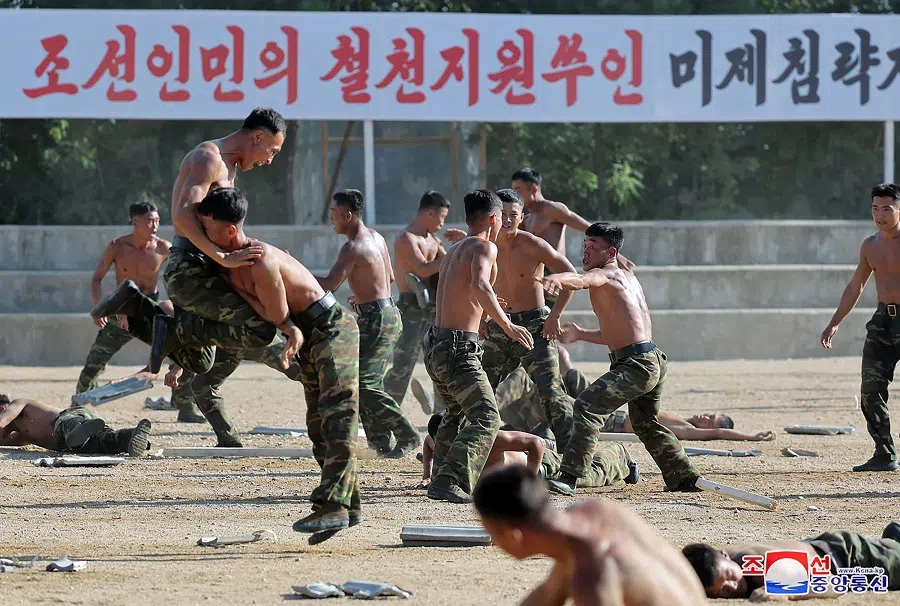
Zhu analysed that firstly, China is unwilling to return to the 1950s, so its fundamental stance is not to send troops or become involved in war. Secondly, even with the existence of the aforementioned treaty, China strives to “marginalise and do away with the so-called military alliance clause”.
North Korea’s current actions and the upcoming US election
In response to the changes to the situation brought about by North Korean soldiers going to Russia, amidst intense diplomatic mediation by various countries, North Korea launched an intercontinental ballistic missile into the East Sea, also known as the Sea of Japan, on 31 October. The flight time of the missile exceeded that of previous test-fired weapons.
According to Yonhap News Agency, Pyongyang launched the missile five hours after the US and South Korean defence ministers strongly condemned North Korea for sending troops to assist Russia. This may have been intended to express discontent, while also at the same time divert international attention from the Russia-Ukraine conflict and is an attempt to “make its presence felt” before the US presidential election.
The outcome of the US presidential election would also be a key variable in the subsequent development of the Russia-Ukraine war, as well as how North Korean soldiers could assist Russia. Republican presidential candidate Donald Trump said during a meeting with Zelenskyy in New York this September that if elected, he could come up with a deal “that’s good for both sides” in order to end the Russia-Ukraine war.
Zhu predicted that if Trump were to win, “the situation could change quickly”.
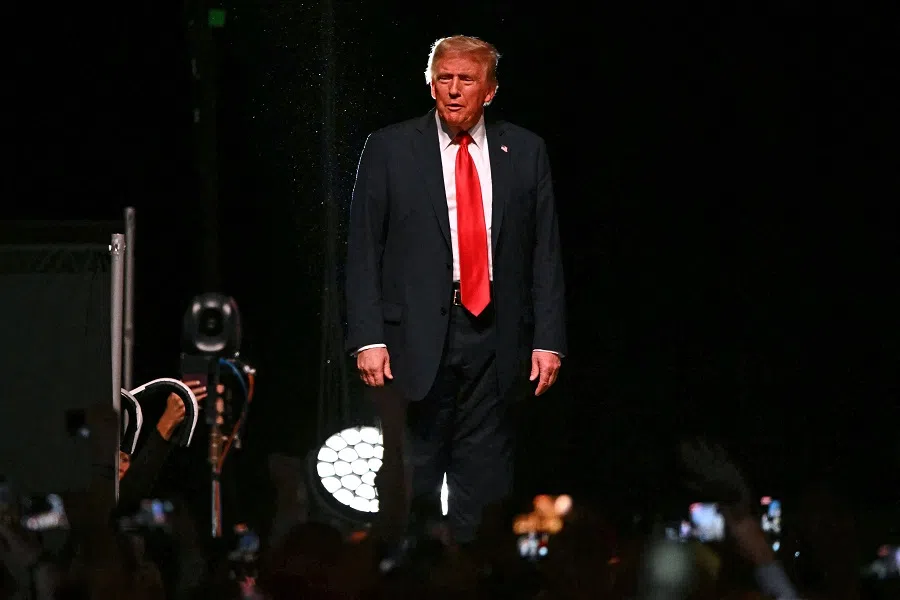
Zhu predicted that if Trump were to win, “the situation could change quickly”.
Li assessed that given the significant differences in the interests and demands of the parties involved, a Trump victory followed by a proposal for a settlement involving substantial Ukrainian territorial losses, “would not only be unacceptable to Ukraine, but many European countries would also be unwilling to accept it”.
This article was first published in Lianhe Zaobao as “朝鲜可能出兵援俄 学者称中国“尴尬困难””.
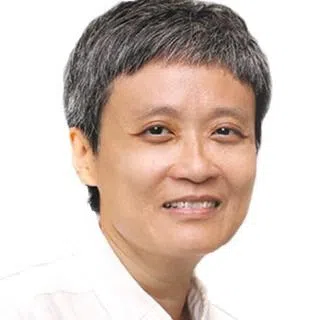


![[Video] George Yeo: America’s deep pain — and why China won’t colonise](https://cassette.sphdigital.com.sg/image/thinkchina/15083e45d96c12390bdea6af2daf19fd9fcd875aa44a0f92796f34e3dad561cc)
![[Big read] When the Arctic opens, what happens to Singapore?](https://cassette.sphdigital.com.sg/image/thinkchina/da65edebca34645c711c55e83e9877109b3c53847ebb1305573974651df1d13a)
